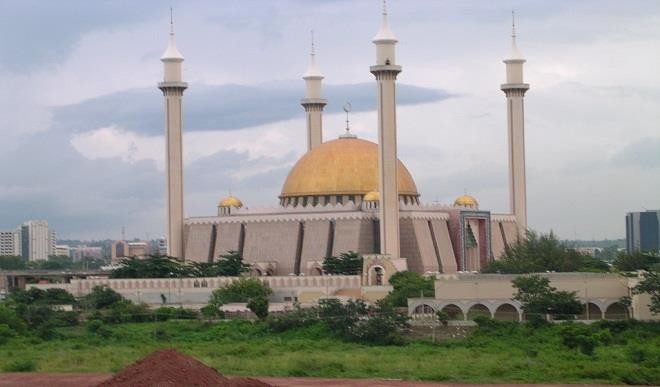Jumat service (Friday congregation prayer) would take place in the National Mosque, Abuja notwithstanding the fears of coronavirus spread.
The Nigerian Supreme Council of Islamic Affairs (NCSIA) disclosed this on Thursday night in Abuja.
This decision by NCSIA is coming despite the confirmation of nine cases of the coronavirus in parts of the country between Wednesday and Thursday.
The Deputy Secretary General of the council, Prof. Salisu Shehu, told newsmen at the NSCIA secretariat at the National Mosque Complex that other social activities would go on as scheduled but may be reviewed when necessary.
“We would not force those that have already decided to suspend Jumat prayers, but at the level of National Mosque, that measure would not be taken because we are still observing the progression of the situation.
“So as far as Jumat service is concerned tomorrow (Friday), it is going to take place here and based on the situation, other social gatherings should also continue.
“We have spoken that people should observe, if there are evidences of the emergence of the infection in several figures, then such measures of stopping social gatherings should be applied,” Shehu said.
Muslim should be prepared
However, in his prepared speech, he called on all Muslims to prepare to hold their prayers in private as the coronavirus pandemic spreads in the country.
He also urged Muslims to comply with all government guidelines on the prevention and control of the COVID-19, including a directive against religious gatherings.
“It is pertinent to note that this strain of the coronavirus is the most virulent that the world has had to deal with in recent times; and it is important not to trivialize, oversimplify or politicise the issue.
“The Prophet (Muhammad) had given us universal guidance on how to behave and conduct ourselves in a pandemic situation like the one in which the world has found itself today.
“He (Muhammad) says in a Hadith reported by Imam al-Bukhari on the authority of AbdurRahman ibn Auf that; ‘whenever you hear of epidemic do not travel to the affected place, and those already in the place should not travel out to other (unaffected) places.’
“It is pertinent to point out that if countries in the world today had complied with this teaching of the Prophet, the disease would not have quickly and easily spread to other parts of the world like wild fire,” he said.
Prof. Shehu said it is clear that measures taken at quarantining infected persons, prohibiting indiscriminate crowding and banning travels are all in line with the teaching of Prophet Muhammad.
He advised that all segments of the society, including religious bodies adhere strictly to all public health directives and regulations provided by the competent authorized agencies like the Nigeria Centre for Disease Control (NCDC) and the Federal and State Ministries of Health regarding COVID-19.
According to Prof. Shehu, this is in line with the Qura’nic injunction, “O You who believe, obey Allah and the Messenger, and those in authority among you” (Qur’an 4:59). It is also in line with the injunction of Allah in Chapter 16, verse 43 that says: “…So ask those who possess knowledge if you do not know”.
He also urged everyone to take all necessary precautions to prevent the spread of the disease, by frequent handwashing with soap, limiting physical contact by giving verbal salutations instead of shaking hands and hugging, observing proper hygiene when coughing or sneezing, among others.
In Lekki, Mosque is shut
Lekki Muslim Ummah (LEMU) says it is suspending all congregational prayers and activities indefinitely at the Lekki Central Mosque in Lagos as a result of the Coronavirus pandemic.
LEMU’s President, Dr. Kamoru Omotosho, in a statement, said congregational prayers and activities at the mosque had been suspended in view of the Lagos State Government’s directive banning the gathering of more than fifty people anywhere in the state.
Dr. Omotosho urged all worshipers to perform their prayers in their respective homes for now.
The Publicity Secretary of LEMU, Alhaji AbdulFattah Olajide, stated further that the Chief Imam of the Central Mosque, Shaykh Ridwan Jamiu, had earlier explained that the suspension of congregational prayers was in line with the Sunnah (practice) of Prophet Muhammad (peace be unto him).

 Join Daily Trust WhatsApp Community For Quick Access To News and Happenings Around You.
Join Daily Trust WhatsApp Community For Quick Access To News and Happenings Around You.


